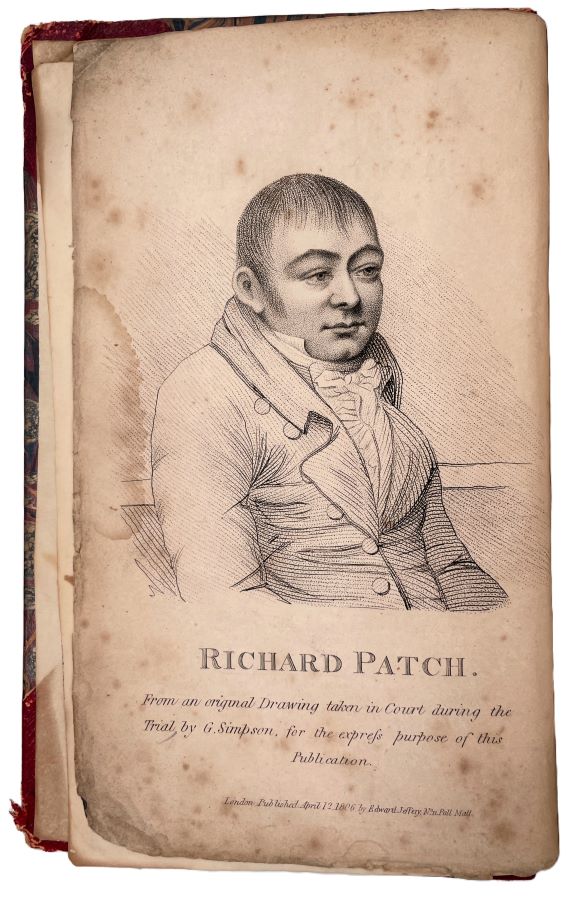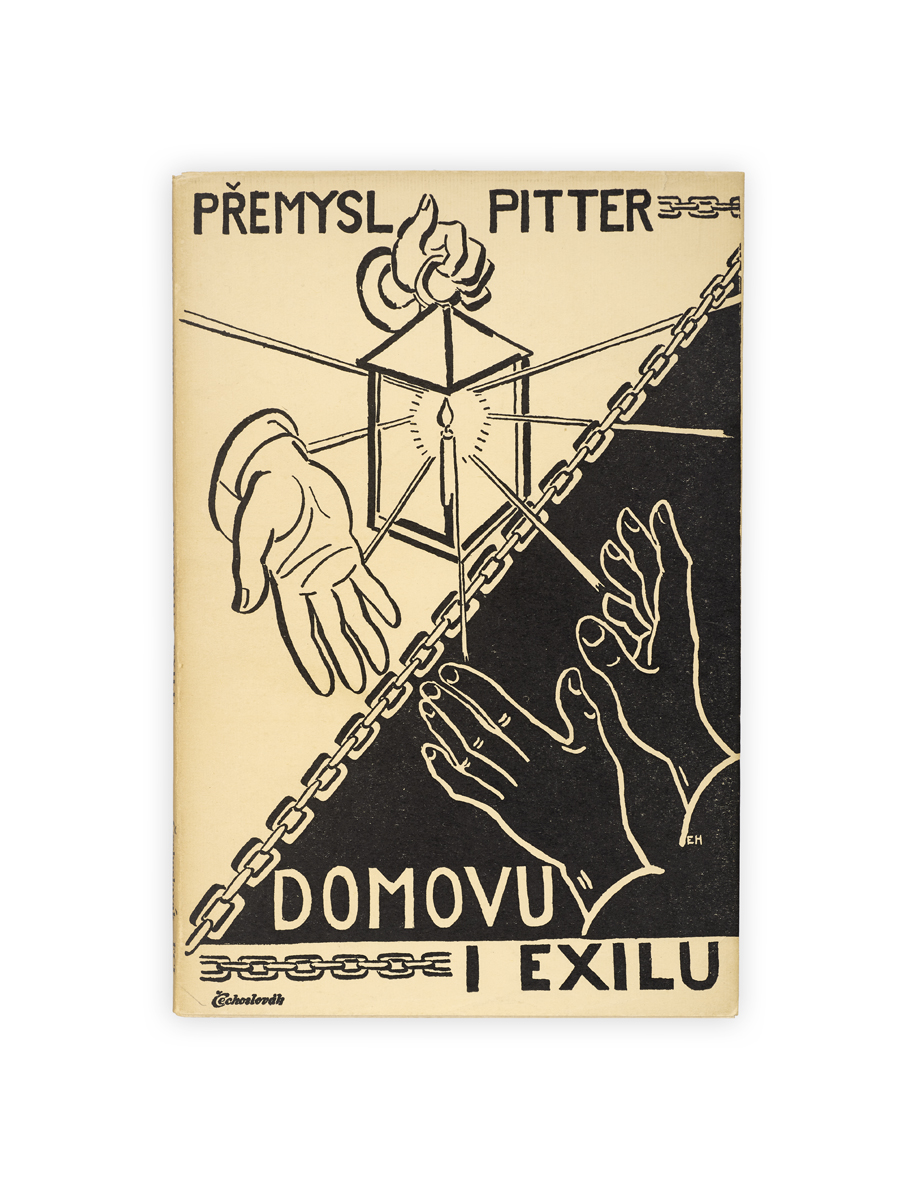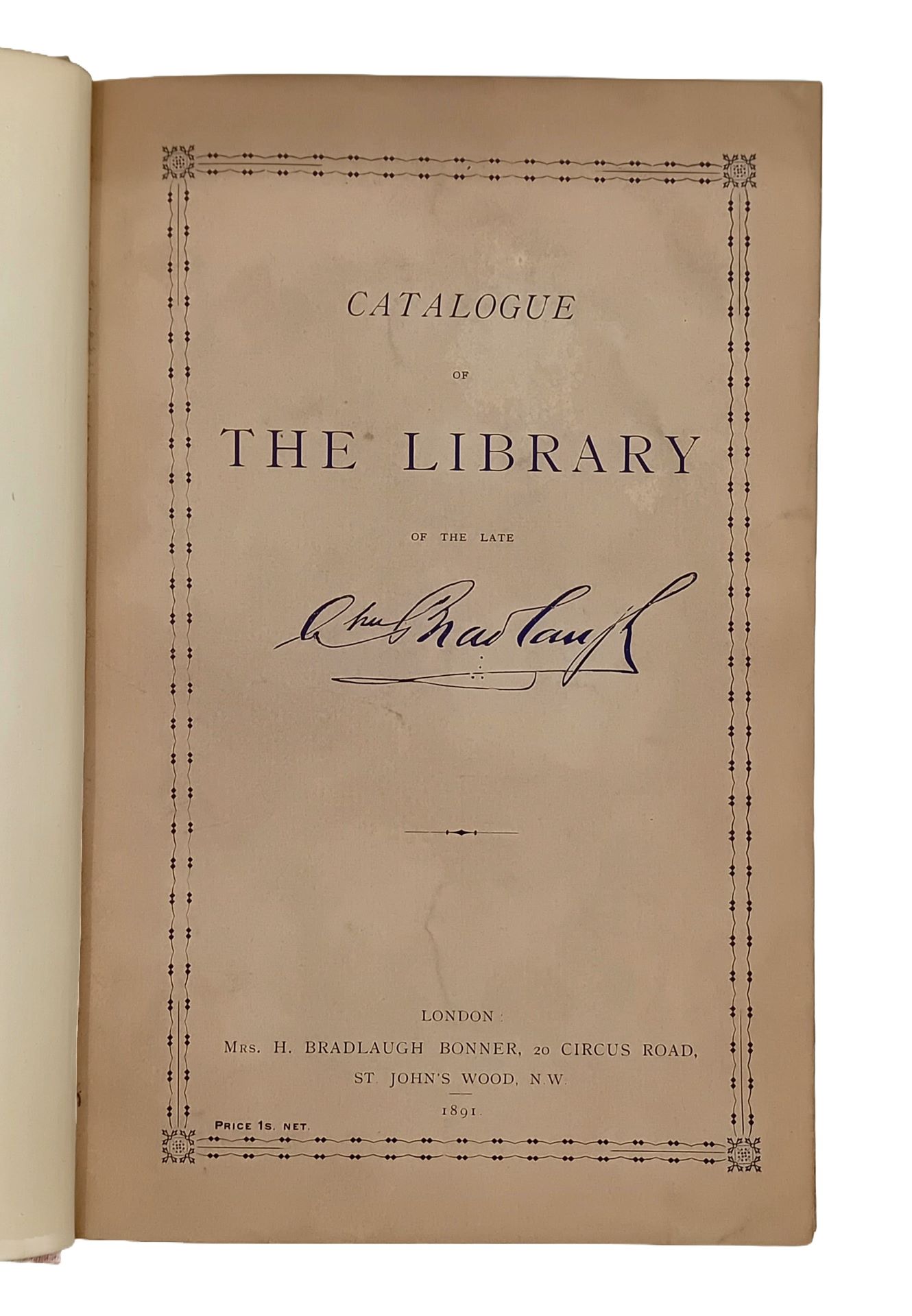
[PATCH, Richard, defendant.]
The Trial of Richard Patch, for the wilful Murder of Mr. Isaac Blight, on the 23d of Sept. 1805, at Rotherhithe, in the County of Surr[e]y ... taken in Shorthand by Blanchard and Ramsey ...
London: Printed, by the express Appointment of the Sheriff, for Edward Jeffery ... Sold by John Walker ... H. D. Symonds ... Harris ... W. J. and J. Richardson ... Ridgway ... and J. Bell ... 1806.
8vo., pp. xvi, 194, [2], with half-title, portraits of Patch (stained) and of the servant Esther Kitchener, both drawn in court, a folding view and ground plan of Mr. Blight’s house with handwritten (or lithographed?) key, and a facsimile of a letter from the sheriff to the stationer Jeffery; a little soiling, some marginal pencilling, untrimmed; late nineteenth-century half roan and marbled boards, spine and joints overlaid with clear tape (not nice); bookplate and stamps of the Law Library of Los Angeles County.

Added to your basket:
The Trial of Richard Patch, for the wilful Murder of Mr. Isaac Blight, on the 23d of Sept. 1805, at Rotherhithe, in the County of Surr[e]y ... taken in Shorthand by Blanchard and Ramsey ...
First edition of this report of a famous trial (there was a rival version from the shorthand of Joseph and W. B. Gurney). Richard Patch (1770?-1806) was an unsuccessful farmer near Exeter who mortgaged his farms in 1803 and departed to London, where he entered the service of Isaac Blight, a ship-breaker in Rotherhithe. When Blight’s financial circumstances became embarrassed he conveyed his property to Patch to protect himself from his creditors and they entered into a partnership agreement. Patch was to pay £1250 for his share of the partnership, £250 from the sale of his farms and a further £1000 by 23 September 1805, a sum that he knew he had no means to obtain.
On the evening of 23rd September a shot was heard and Blight, drowsing in the back parlour, was badly wounded, dying the next morning. Patch tried to create an alibi by slamming a door to convince the servant Esther Kitchener that he was in the privy at the time of the murder. The week before, already laying his plans, he had fired at the front parlour from the garden to suggest that there was a stranger outside gunning for Blight. Despite this subterfuge he was convicted on very strong circumstantial evidence including stockings muddied from the wharf when he threw the pistol into the river. Passing sentence the Lord Chief Baron told Patch: ‘you began this practice in fraud, continued it in ingratitude, and completed it by shedding the blood of your friend and benefactor.’ Patch was hanged in Southwark outside the new prison in Horsemonger Lane.
The case excited great interest and the trial was attended by a throng of titled individuals, including the royal dukes of Cumberland and Sussex.

